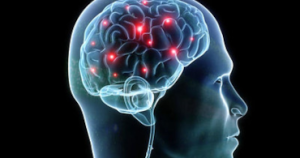
Mental Associations
Our mental associations are fantastic at helping us navigate our daily lives. We can also change them to live happier and healthier lives.
We’re constantly forming subconscious mental associations. Mental associations are groups of connected thoughts and emotions around an experience in our lives, or a group of connected experiences. They can be as small as the components of a single thought, or as large as groups of things we like or dislike. It’s our mental associations that categorize and cross-reference our thoughts, memories and emotions.
It’s our mental associations in action when we think about something like spinach. We don’t need to stop and figure out if we like it or not because we already have a mental association for it. It’s not just remembering whether or not we like spinach, we have a mental picture of spinach and a flavor profile we can almost taste associated with it. It’s our mental associations that bring back old memories from hearing an old song where we remember and even experience some of the same thoughts and emotions of those times when we listened to it in the past. When someone’s name comes up in conversation, it’s our mental associations that raise our feelings towards that person to the surface.
We can also work with our mental associations to better our lives. For instance, if we feel stressed or anxious when we pull into the driveway at work, or before we even get there, it’s probably because we associate our workplace with these feelings and automatically feel like this when we get there. Changing our mental associations around our work environment can change our entire workplace outlook.
We can easily see how being handed a million dollars when we arrived at work would change our thoughts and feelings about our workplace right away, so we’re already aware of our mental associations even if we haven’t consciously thought about them. Being handed a million dollars when we arrive at work isn’t very likely though, so we need to get a little more creative and look for ways we can change our associated feelings towards the workplace. Finding something hilarious and sharing it with workmates could help, especially if it’s work-related. Keeping some chocolates or other comfort snacks in the desk, or bringing some with us, that we only have at work could mix a sense of satisfaction into the workday. Going out for a drink after work with coworkers we don’t particularly like, even though we don’t want to, could help ease the tension we associate with the workplace.
We can also work with our mental associations to help with our mental health. For example, if we’ve been feeling depressed for more than a couple of days we run the risk of starting to associate our surroundings with the feeling of being depressed, making it that much harder to pull ourselves out of it. Going to places we associate with happier times can help get us back on track sooner.
We can even create brand new helpful mental associations. A great example is the Applied Awareness Stress And Anxiety Relief and Nature-Based Meditation programs, where we create a natural mental association between being aware of breathing and becoming deeply relaxed. Then we use our new mental association to combat stress by paying attention to breathing when we start to feel stressed or anxious.
